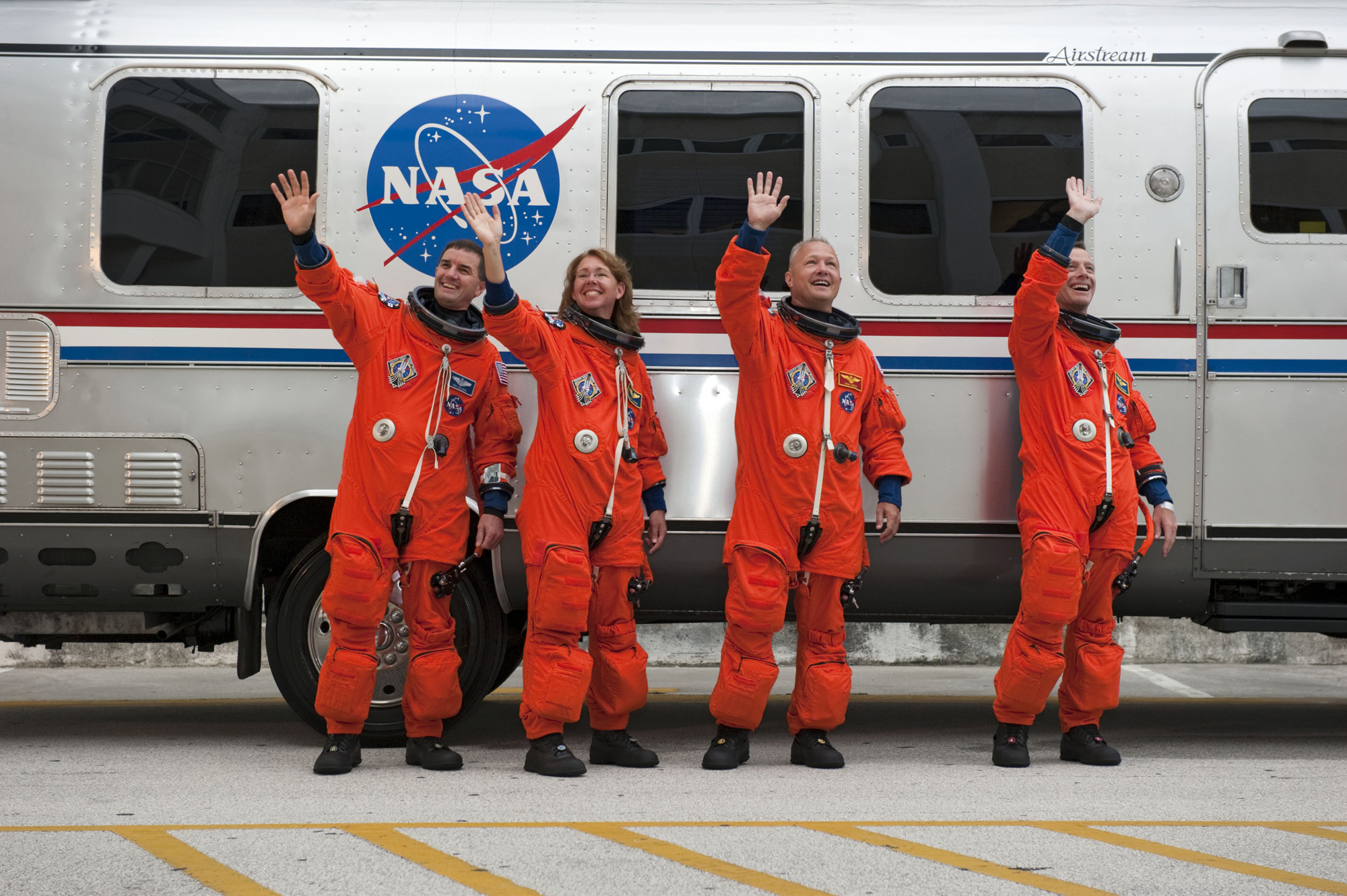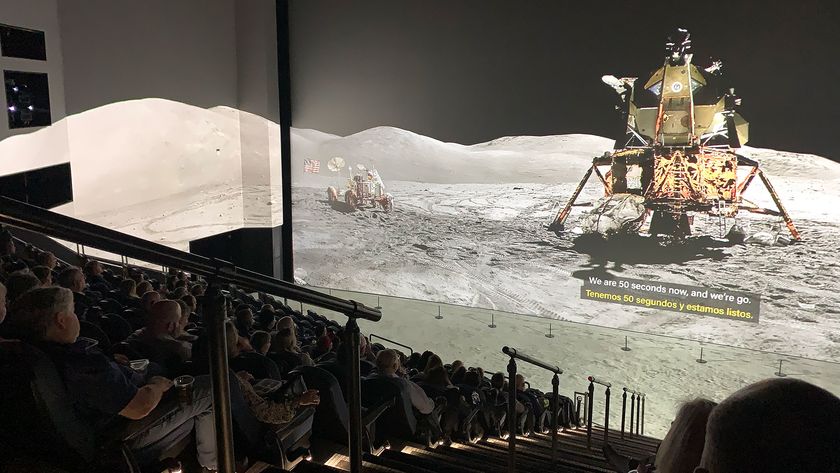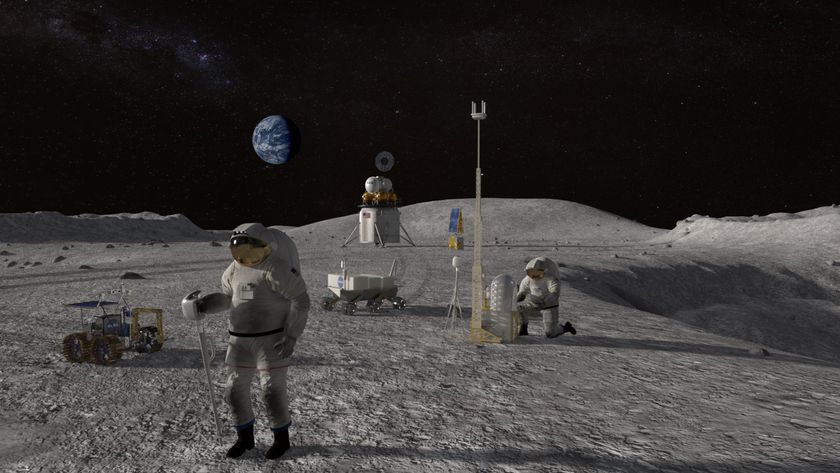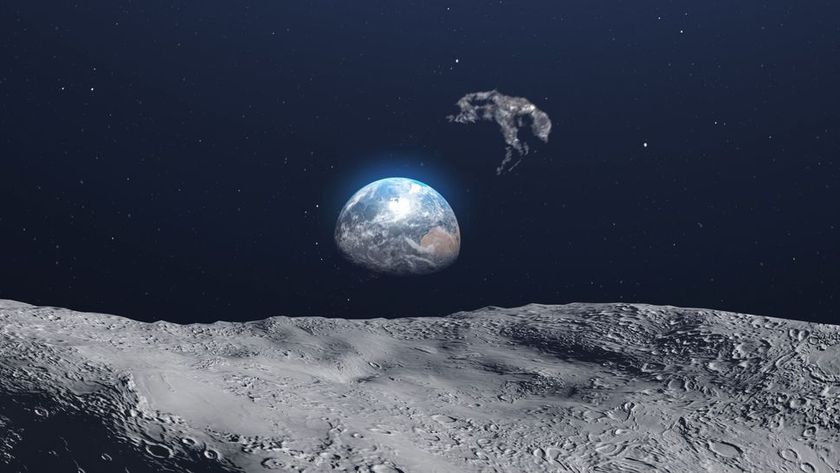
Final Shuttle Mission Off to Super Smooth Start, NASA Says

Space shuttle Atlantis is off to one of the smoothest starts of a mission in the 30-year history of NASA's shuttle program, which ends with this same voyage, agency officials said.
Atlantis launched into space Friday (July 8) from NASA's Kennedy Space Center in Florida on what is the final flight of NASA's shuttle program before the fleet is retired this year. The shuttle and its crew of four are headed for the International Space Station to deliver vital supplies.
"I think this is certainly one of the better starts that we have seen," shuttle flight director Kwatsi Alibaruho told reporters today (July 9). [Photos of NASA's Last Space Shuttle Launch]
Since soaring into orbit, Atlantis has not suffered any minor hiccups or anomalies requiring the attention astronauts or Mission Control, a fact which Alibaruho said has allowed the shuttle's skeleton crew and support team to stay focused on their mission.
The 26-year-old Atlantis is flying its 33rd and last voyage, a mission that is also NASA's 135th shuttle flight since the fleet began launching into orbit in 1981. NASA is retiring the shuttle fleet to make way for a new program aimed at deep space exploration.
Swift heat shield survey
Get the Space.com Newsletter
Breaking space news, the latest updates on rocket launches, skywatching events and more!
The lack of glitches allowed Atlantis' four-astronaut crew to inspect the shuttle's heat shield for any dings in near-record time, Alibaruho said. An early analysis has found no concerns with heat shield, he added.
The survey used Atlantis' robotic arm and a sensor-tipped inspection pole to examine the shuttle's most vulnerable heat shield panels for damage. The six-hour inspection has been a standard chore for every shuttle crew since 2003, when heat shield damage led to the destruction of the shuttle Columbia.
But most shuttle crews are made up of at least six astronauts, while Atlantis is only carrying four crewmembers — a precaution since there is no backup shuttle standing by as a rescue ship in case of an emergency.
Minor malfunctions and glitches can pose a distraction to flight controllers since every one must be investigated to make sure it doesn't pose a greater threat to the crew and mission, Alibaruho said. That takes time and mental effort that could otherwise be dedicated to main mission tasks, he added.
"I'm very grateful that the spacecraft is behaving as it is so that we can finish safely," Alibaruho said. "It helps us enjoy the mission more, honestly."
Alibaruho cautioned that it is still early in Atlantis' 12-day mission to the space station, with the shuttle slated to arrive at the orbiting lab on tomorrow at 11:07 a.m. EDT (1507 GMT).
"This is just Flight Day 2 and we've got plenty of more opportunity to fall behind and experience problems, but we'll do our best to avoid that," Alibaruho said.
Mission Control is also close adding a 13th day to Atlantis' flight and is monitoring the shuttle's power system to make sure its supply of cryogenic fuel will allow the extension day, he added.
Long-distance wakeup call
Atlantis shuttle commander Chris Ferguson and his crew woke up today to unique alarm today: a long-distance "Good Morning" from a crowd at NASA's Marshall Space Flight Center in Huntsville, Ala. [Vote Now! What's Your Favorite Space Shuttle?]
"Good morning Atlantis, the Marshall Space Flight Center hopes you enjoyed your ride to orbit. We wish you a successful mission and a safe return home," the workers said in a recorded video message.
The center, which is responsible for the shuttle propulsion system and is home to a space station payload operations center, chose the song "Viva la Vida" by Coldplay to rouse the crew. Typically, shuttle mission wakeup songs are picked by the astronauts' families or friends.
"Thanks for that great message and awesome ride to orbit and the 134 before that with this tremendous space shuttle program," Atlantis pilot Doug Hurley radioed back. "We really look forward to having a visit with you all when we finish the mission."
You can follow SPACE.com Managing Editor Tariq Malik on Twitter @tariqjmalik. Visit SPACE.com for complete coverage of Atlantis' final mission STS-135 or follow us @Spacedotcom and on Facebook.
Join our Space Forums to keep talking space on the latest missions, night sky and more! And if you have a news tip, correction or comment, let us know at: community@space.com.

Tariq is the Editor-in-Chief of Space.com and joined the team in 2001, first as an intern and staff writer, and later as an editor. He covers human spaceflight, exploration and space science, as well as skywatching and entertainment. He became Space.com's Managing Editor in 2009 and Editor-in-Chief in 2019. Before joining Space.com, Tariq was a staff reporter for The Los Angeles Times covering education and city beats in La Habra, Fullerton and Huntington Beach. In October 2022, Tariq received the Harry Kolcum Award for excellence in space reporting from the National Space Club Florida Committee. He is also an Eagle Scout (yes, he has the Space Exploration merit badge) and went to Space Camp four times as a kid and a fifth time as an adult. He has journalism degrees from the University of Southern California and New York University. You can find Tariq at Space.com and as the co-host to the This Week In Space podcast with space historian Rod Pyle on the TWiT network. To see his latest project, you can follow Tariq on Twitter @tariqjmalik.


